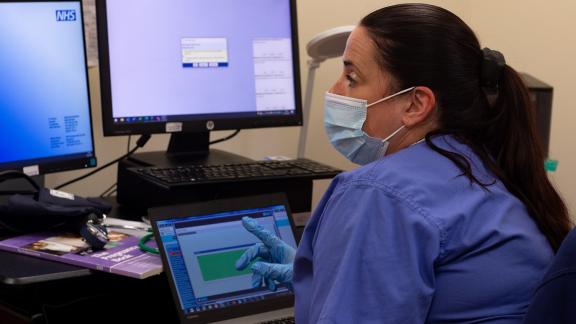Beating burnout in the NHS

Burnout is a state of physical and emotional exhaustion. It can occur when you experience long-term stress in your job, or when you have worked in a physically or emotionally draining role for a long time.
The NHS Staff Survey 2023 results indicate that burnout is more prevalent among staff in certain occupations, staff in clinical roles more likely to report burnout. Around half of staff in ambulance roles claim to have felt burnt out due to their work this year (49.3 per cent). On this measure, burnout is at a similar level or slightly lower than in 2021 across many occupation groups*. However, the proportion of medical and dental staff reporting feeling burnout due to their work has increased by 2.2 percentage points to 35.3 per cent.
The Burnout Report, 2024 by Mental Health UK found that nine in ten UK adults experienced high or extreme stress in the past year. Almost a quarter of UK adults felt unable to manage stress and pressure in their lives. While 35 per cent of respondents did not feel comfortable talking about mental health with managers and senior leaders at work.
Research by The King's Fund shows that NHS staff are 50 per cent more likely to experience chronic stress, a known contributor to burnout. Factors such as staff shortages, high workload, and pressures to maintain high quality patient care all contribute to burnout in NHS staff. According to the British Medical Journal (BMJ), burnout significantly impacts the retention of our highly valued NHS workforce, with more staff thinking about leaving the NHS.
Although burnout is a long-standing issue, the pandemic placed further burdens on NHS staff and exacerbated the problem. The Long Term Workforce Plan has emphasised the importance of retaining our valued NHS workforce and while there are factors beyond our control, such as increasing demands on the service, employers must act quickly and effectively to tackle burnout by facilitating a supportive, compassionate and positive experience that prioritises the experience and wellbeing of staff.
This guidance intends to support leaders in the NHS, including health and wellbeing leads and managers, who all play an important role in beating staff burnout.
Top tips for NHS organisations
- Ensure optimum staffing levels where possible.
- Shift towards a culture of prevention and early intervention.
- Overcome the stigma of mental health conversations at work.
- Recognise pressures of maintaining a hero identity.
- Upskill staff to understand burnout symptoms.
- Upskill managers to support staff effectively.
- Encourage compassionate leadership.
- Build organisational resilience.
Supporting our NHS staff with burnout and stress
To support time to Talk Day 2025, we held a webinar to better understand the key factors contributing to burnout and stress. We heard case studies, and tools and resources available to support our NHS workforce. Watch the full webinar on supporting our NHS staff with burnout and stress below.



